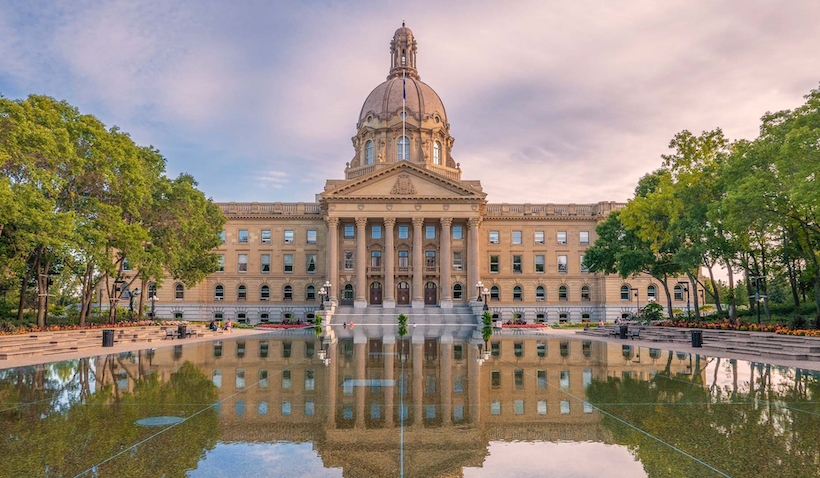I present a prime example today, one that shines a spotlight on what’s been called Trudeau’s mega intellectual PR machine.
It begins in the form of a recent social media outburst from Trudeau’s Environment Minister Steven Guilbeault. Guilbeault started his tweet storm by invoking Canada’s terrible wildfires last summer, suggesting they are the result of climate change, even though his statement is at odds with the general findings of the United Nations’ Intergovernmental Panel on Climate Change and data from the European Union. The EU has found that wildfire emissions have decreased globally since 2003, and the IPCC has found no signal for an increase in the dry, hot “fire weather” that can lead to wild fires for the foreseeable future until 2100.
But Guilbeault has his own narrative: “After a summer of the worst wildfires on record, it couldn’t be more clear that addressing the climate crisis and building a stronger economy of the future requires an all-hands-on deck effort. But it’s clear some would prefer to chart a more reckless course.”
He alleged Alberta Premier Danielle Smith is not serious about cutting oil and gas emissions, essentially because she refuses the Trudeau Liberal’s latest scheme, imposing a discriminatory, sector-specific cap on Alberta oil and gas emissions.
It was then that Guilbeault fired up the mega PR machine into high gear: “As Alberta-based Pembina (Institute) has pointed out, the cap on pollution is both responsible and realistic.”
There you have it. Not only does Guilbeault — an activist so wrong-headed he’s spent a lifetime rejecting nuclear power as a solution for lowering emissions — believe that his own ideas are the height of good sense, so does an independent energy think tank based right in Alberta itself.
The Pembina prepared a seven-page technical brief setting out what they describe as “feasible pathway to meeting the cap.”
Case closed, right?
After all the Pembina Institute is seen by many as non-partisan and trustworthy. It’s presented as such in endless news stories, including the Institute’s recent claim that Alberta has no active climate plan. As the Pembina’s Simon Dyer put it to the Canadian Press. “It’s a plan in name only.”
Checkmate, right?
Maybe not so fast. There’s more to this.
Did you know that Guilbeault and Pembina go way back? Indeed, Guilbeault has a good, old friend in the Pembina Institute. In 2007, Guilbeault was already working non-stop to thwart the oil sands, not to mention nuclear power, through his Quebec group Equiterre. With Marlo Reynolds, then executive director of the Pembina Institute, Guilbeault wrote an editorial pushing the then novel concept that Alberta produced “dirty oil.”
Guilbeault and Reynolds boasted of “grassroots protestors” opposing oil sands expansion. It appears, though, that those humble grassy roots found their way to a pot of gold. The accounting firm Deloitte found Pembina was to get $7.6 million in foreign funding and Equiterre $2.4 million between 2003 and 2019.
Guilbeault is now a powerful figure in the Trudeau government. For its part, Pembina has found the Trudeau Liberals to be a solid source of funding in recent years. A search of the federal government’s grants and contributions data-base reveals the Pembina Institute has received something in the order of 35 federal grants since 2017 worth a total of $7.6 million. The funding is for numerous purposes, in large part along the lines of promoting clean technology and fuel in various communities and industries.
In a statement, the Pembina Institute said that $7.6 million represents just 17% of the Institute’s total revenue since 2017: “We are a non-partisan organization and, regardless of where our funding comes from, we work constructively with governments at all levels across Canada. We produce independent research.”
I see no reason to doubt the quality of the Pembina Institute’s work for the federal government. At the same time, its environmental mission of pushing an energy transition has them regularly take political stands on hot button issues. It all adds up to a reasonable question around perceptions of the organization’s independence and objectivity.
Just now, for example, the claim made by the Liberals and the Pembina Institute that Alberta has no climate plan flies in the face of Alberta’s hydrogen and carbon capture and storage programs, not to mention Alberta’s hope Trudeau will get on board with exporting Alberta LNG to replace dirty coal burning in Asia. You may not like such a plan but how can you not recognize it as one?
The Institute also has a 73-page report setting out how and why Alberta should commit to a net-zero electrical grid by 2035, another area of fierce disagreement between Alberta and Ottawa.
In this way, and whatever its stated intent, the Pembina Institute has become a political player, a tool used by the Liberals to bolster and to amplify the Trudeau/Guilbeault policy playbook.




